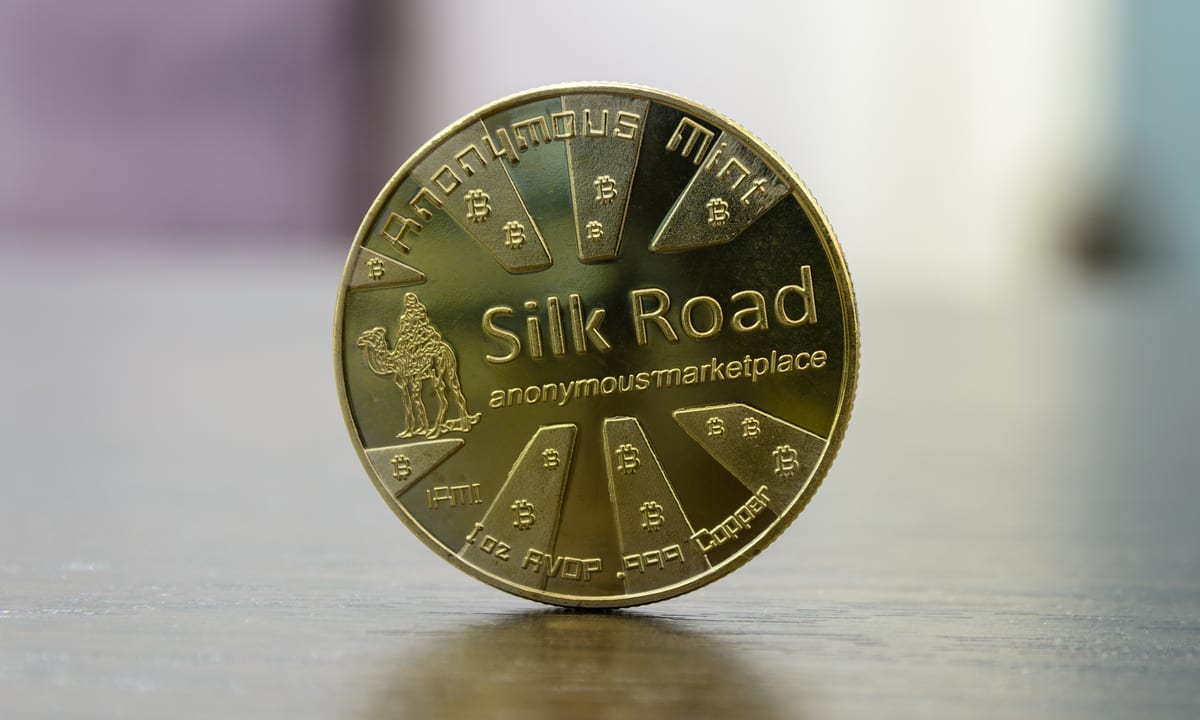Silk Road Bitcoin Sale Won’t Shake Market if Done OTC – CryptoQuant
10.01.2025 17:00 2 min. read Alexander Zdravkov
According to CryptoQuant, the potential sale of $6.5 billion in Bitcoin seized from Silk Road is unlikely to have a significant long-term impact on the market, provided the transaction occurs through over-the-counter (OTC) desks.
A report from January 9 highlighted that concerns over this massive sale might be overstated, as the Bitcoin stash remains dormant for now.
The US Department of Justice (DOJ) received approval on January 8 to sell the confiscated Bitcoin, but no movements have been recorded yet. Despite the uncertainty surrounding the sale, Bitcoin’s recent decline, from its peak of $108,000 to just over $92,000, has been primarily driven by panic selling from short-term holders. In the past day alone, over 36,000 BTC moved from short-term wallets to exchanges, with most of these coins being sold at a loss, contributing to the market’s recent downward pressure.
CryptoQuant’s analysis suggests that the potential market impact from the Silk Road Bitcoin stash is minimal compared to the overall increase in Bitcoin’s realized market capitalization, which has risen by $381.7 billion in the last year. This growth dwarfs the value of the seized Bitcoin, making it less likely that its sale will create lasting downward pressure on the market.
The firm also acknowledged that selling the Bitcoin directly on crypto exchanges could lead to short-term volatility, as evidenced by the German government’s 50,000 BTC sale in 2024, which affected Bitcoin’s price. However, the effect of the Silk Road Bitcoin sale will depend largely on how the DOJ handles the transaction.
-
1
Strategy Claims It Can Weather a Bitcoin Crash to $20K Without Trouble
16.07.2025 14:08 1 min. read -
2
Peter Schiff Warns of Dollar Collapse, Questions Bitcoin Scarcity Model
12.07.2025 20:00 1 min. read -
3
Corporate Bitcoin Adoption Soars: 125 Public Companies Now Hold BTC
16.07.2025 20:00 2 min. read -
4
Bitcoin ETFs See $1B Inflow as IBIT Smashes Global AUM record
11.07.2025 21:00 1 min. read -
5
Bitcoin Reaches $119,000 Milestone as Corporate Demand and ETF Inflows Rise
13.07.2025 17:45 2 min. read
Where Is The Smart Entry Point For Bitcoin Bulls?
With Bitcoin hovering near $119,000, traders are weighing their next move carefully. The question dominating the market now is simple: Buy the dip or wait for a cleaner setup?
Matrixport Warns of Bitcoin Dip After Hitting This Target
Bitcoin has officially reached the $116,000 milestone, a level previously forecasted by crypto services firm Matrixport using its proprietary seasonal modeling.
Bitcoin Risk Cycle Flips Again as Market Enters Safer Zone
Bitcoin’s market signal has officially shifted back into a low-risk phase, according to a new chart shared by Bitcoin Vector in collaboration with Glassnode and Swissblock.
Robert Kiyosaki Warns of 1929-Style Crash, Urges Bitcoin Hedge
Financial author Robert Kiyosaki is once again sounding the alarm on America’s economic health.
-
1
Strategy Claims It Can Weather a Bitcoin Crash to $20K Without Trouble
16.07.2025 14:08 1 min. read -
2
Peter Schiff Warns of Dollar Collapse, Questions Bitcoin Scarcity Model
12.07.2025 20:00 1 min. read -
3
Corporate Bitcoin Adoption Soars: 125 Public Companies Now Hold BTC
16.07.2025 20:00 2 min. read -
4
Bitcoin ETFs See $1B Inflow as IBIT Smashes Global AUM record
11.07.2025 21:00 1 min. read -
5
Bitcoin Reaches $119,000 Milestone as Corporate Demand and ETF Inflows Rise
13.07.2025 17:45 2 min. read


